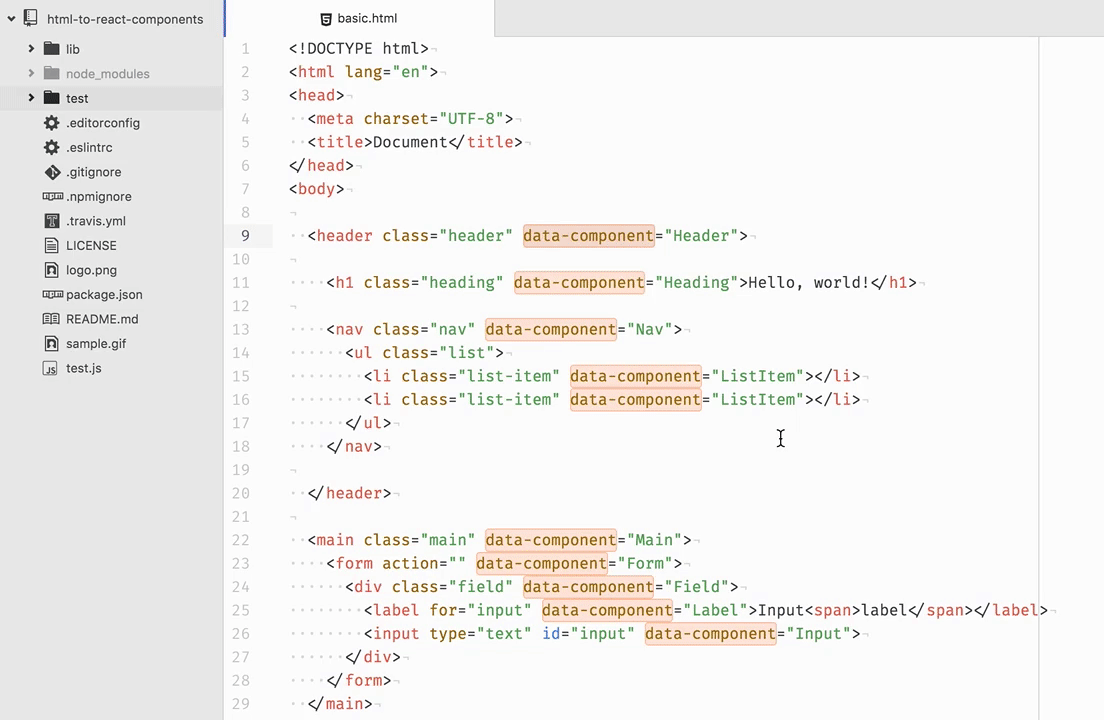

Extract annotated portions of HTML into React components as separate modules. The structure of HTML is preserved by importing child components and replacing appropriate pieces of HTML with them. As a result you get an entire components tree ready to be rendered.
This utility was designed to free React developers from a boring work of translating HTML into components.
Imagine you just got a pile of HTML from your designers. The first thing you will do is break HTML into React components. This is boring and we can automate this.
$ npm i -g html-to-react-components
HTML components should be annotated with data-component attribute. The value of the attribute is the name of the React component.
See and run test.js file for usage example and output or watch a video of the process.
$ html2react ./src/*.html -c stateless -m es6 -d _ -o components -e jsx
import extractReactComponents from 'html-to-react-components';
extractReactComponents(
`<!DOCTYPE html>
<html lang="en">
<head>
<meta charset="UTF-8">
<title>Document</title>
</head>
<body>
<header class="header" data-component="Header">
<h1 class="heading" data-component="Heading">Hello, world!</h1>
<nav class="nav" data-component="Nav">
<ul class="list">
<li class="list-item" data-component="ListItem">#1</li>
<li class="list-item" data-component="ListItem">#2</li>
</ul>
</nav>
</header>
</body>
</html>
`,
{
componentType: 'stateless',
moduleType: false
});
/*
{ Header: 'const Header = () => <header className="header">\n\n <Heading></Heading>\n\n <Nav></Nav>\n\n </header>;',
Heading: 'const Heading = () => <h1 className="heading">Hello, world!</h1>;',
Nav: 'const Nav = () => <nav className="nav">\n <ul className="list">\n <ListItem></ListItem>\n <ListItem></ListItem>\n </ul>\n </nav>;',
ListItem: 'const ListItem = () => <li className="list-item">#2</li>;' }
*/Type of generated React components.
Values:
statelesses5(default)es6
Type of generated JavaScript modules.
Values:
false(do not extract components as modules)es6(default)cjs(CommonJS)
Delimiter character to be used in modules filename.
If you don't specify a delimiter, or pass -d without a value, then the component name in the HTML will be used unchanged as the filename. If you do specify a delimiter character, then the module name is broken into words, joined with the delimiter and lower-cased.
Configuration options for output to file system.
Output directory path.
Default is components directory in the current directory.
Output files extension.
Default value is js.
If you spotted a bug, please, submit a pull request with a bug fix. If you would like to add a feature or change existing behaviour, open an issue and tell about what exactly you want to change/add.
MIT

